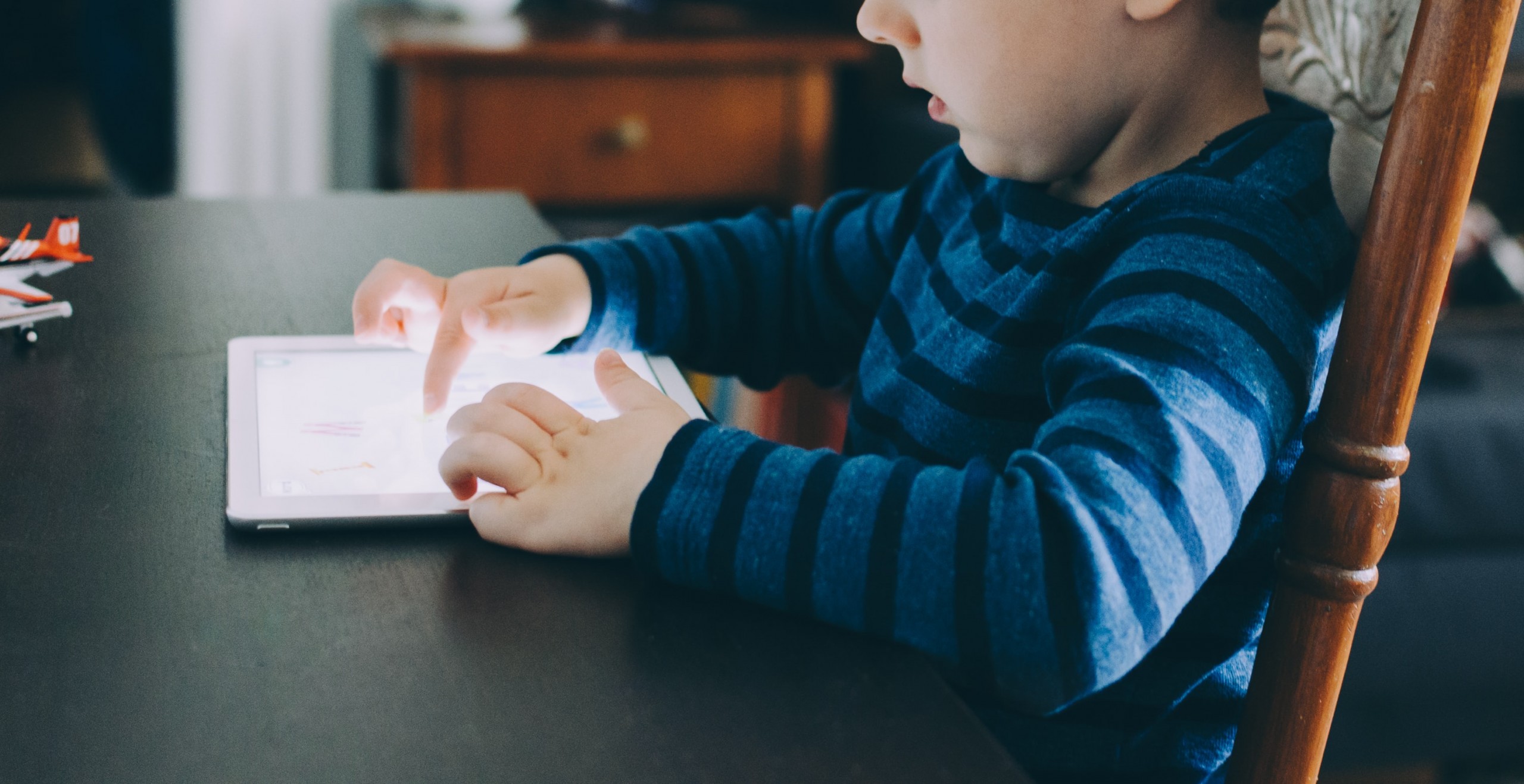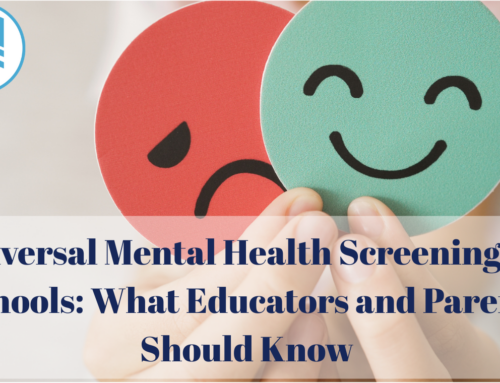
The Presence of Screens
From the family PC to individual tablets, from the living room TV to the personal cell phone, screens surround us constantly. At their best, these technological tools facilitate efficiency, accuracy, education, industry, scientific advancement, and even relationships.
Despite the necessity and benefits of technology in the modern world, America’s increasing screen exposure comes with unmistakable downsides. This is a concern, especially when considering the development and lifestyle of the modern child.
The Pew Research Center addresses this issue: “One of the most highly discussed – and debated – topics among parents today is screen time. How much is too much? And what impact will screens have on children’s development?”
Screen Time and Young Children
In light of these pressing concerns, the World Health Organization recently updated its childhood screen time recommendations:
- Infants under a year: screen time is not recommended.
- Infants one to two years: sedentary screen time (such as watching TV or videos, playing computer games) is not recommended.
- Children two to three years: sedentary screen time should remain under an hour; less is better.
- Children four to five years: sedentary screen time should remain under an hour; less is better.
Though these recommendations seem to offer parents reasonable guidance, many families have difficulty adhering to these ideals. Screen time offers overwhelmed parents a respite from their demanding offspring and can provide a mindless distraction for the little ones. Recent research has shown that the average child experiences an overabundance of screen time. As of June 2020, 26% of children from infancy to four years old spent more than four hours a day utilizing an electronic device.
Too much screen time has proven to result in extremely detrimental effects on young and developing minds. Professor Fiona Bull MBE, Ph.D. offers an explanation of the rationale behind the WHO’s most recent guidelines. “We’re concerned — and the evidence shows — that extended periods of time passively watching screens is detrimental to health, particularly for very young children…in the areas of cognitive development, language skills, even motor skills.”
A recent Canadian study concluded that “children who watched more than 2-hours of screen-time/day had increased externalizing, internalizing, and total behavior problems scores compared to children who watched less than 30-minutes.”
Overall, studies indicate that screen time, regardless of amount, does indeed affect the growing minds of young children. While children can’t be entirely removed from the screen-involved universe surrounding them, experts suggest that limiting a child’s screen exposure helps minimize the adverse effects.
Screen Time and Older Children
While limited screen time is recommended for young children, what are the recommendations for children over the age of five? The answer to this question is somewhat incomplete, as there are no hard and fast recommendations given by leading experts. Experts do agree that a certain amount of screen time can be safe, and even beneficial at times. However, regardless of the ambiguity of specific guidelines, researchers have definitively proven that an overabundance of unchecked screen time in children six and up offers devastating consequences.
On average, American children between the ages of eight and twelve spend four to six hours a day watching or using screens, while teens were found to spend up to nine hours doing the same. In view of these findings, it’s important to understand the impact that screen time can have on our children, no matter their age.
Azmaira H. Maker Ph.D. for Psychology Today states, “A critical question to ask is whether screen time affects neurological functioning (which can affect psychological and behavioral functioning) and if so what is the impact?”
Maker then continues, demonstrating a myriad of screen-induced negative effects including but not limited to:
- Increased stress and anxiety
- Increased time to complete tasks and added inability to complete deeper, more challenging tasks
- Decreased ability to problem solve
- Decreased ability to recognize facial emotions and non-verbal cues
- Repeated release of dopamine, creating a chronic need for stimulation and instant gratification.
- A decrease in the number of dopamine receptors, which is linked to depression
- The shutdown of the pineal gland, resulting in less and lower quality sleep
- Decreased focus and attention span
- Impaired cognitive functioning
As Maker reports, physical changes to the brain have also been observed, including the shrinkage of brain matter itself. These changes result in decreased processing abilities, a loss of executive function, a decreased capability to process social cues, a lowered ability to experience empathy and compassion, and a decreased aptitude for communication.
In addition, successful parenting can also be affected, as power struggles and family conflict often accompany childhood screen addiction.
Conclusion
In summary, regardless of age, excessive childhood screen time for children from infancy through the teen years has been shown to impair normative brain development, appropriate personal and social behavior, empathy, communication, cognitive functioning, emotional regulation, sleep, and appropriate attention span.
A certain amount of age-appropriate screen utilization can be beneficial, as our current technology offers a portal to a world of knowledge and experience. The modern child should enter adulthood with a general knowledge of present technology and how to utilize it, as well as an understanding of the benefits and dangers of the same. A certain degree of screen time is not only necessary in today’s childhood experience but unavoidable. According to the Mayo Clinic, responsibility, content, and parental oversight are key to healthy screen interactions.
In an age of screen abundance and reliance, parents must be mindful. It is necessary to discover the balance between proper use of these vital technological tools and an overabundance of screen access. The modern parent has a difficult and risky path to travel. However, through wisdom, prudence, and determination, they have the ability to supply the world with well-informed citizens who can use technology in a balanced and responsible way.





[…] After children undergo several weeks of detox, they can break their addiction! If you take away the source of their addiction, you must fill up a child’s life with real, physical relationships: good storybooks, getting […]
[…] Mobicip is a popular parental monitoring app, with over 2 million parents using its features to keep their children safe. This app is geared toward limited screen time, online protection, and parental monitoring, helping you instill healthy screen-time habits. […]
[…] Time. Screen time carries its own risk to mental and emotional health, especially for children. But, in addition to screen time’s effects on an individual’s mood, mental health, and […]
[…] After children undergo several weeks of detox, they can break their addiction! If you take away the source of their addiction, you must fill up a child’s life with real, physical relationships: good storybooks, getting […]
[…] Mobicip is a popular parental monitoring app, with over 2 million parents using its features to keep their children safe. This app is geared toward limited screen time, online protection, and parental monitoring, helping you instill healthy screen-time habits. […]